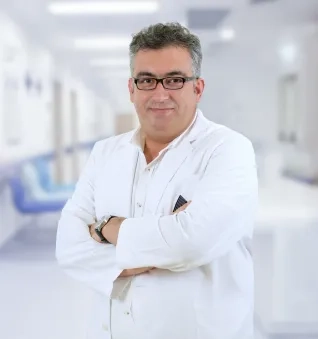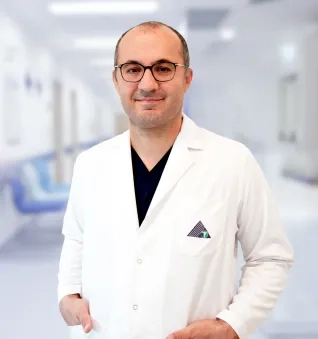Alo Yeditepe
Alo Yeditepe
Is Hypertension Seen in Young People?
Gençlerde Hipertansiyon Görülür mü?
Although high blood pressure is commonly associated with older age, it is now being observed in younger age groups as well. Cardiology Specialist Assoc. Prof. Dr. Mustafa Aytek Şimşek provided vital information, stating that this situation is due to genetic and environmental factors.
High blood pressure is a significant health problem affecting one out of every three individuals in our country. If left untreated, it can lead to serious conditions such as heart attack, stroke, kidney failure, and blindness. Moreover, it is no longer just a threat to older individuals but also to young people. Cardiology Specialist Assoc. Prof. Dr. Mustafa Aytek Şimşek explained the reasons for the occurrence of this insidious disease in young people and its treatment methods as follows:
It Has Been Lowered to the 30s
Different sources may classify different age groups as "young hypertension," but it is possible to define hypertension that starts before the age of 50 as "young hypertension." However, the increasing prevalence of hypertension in this age group makes it challenging to classify it as young hypertension. Therefore, some sources have lowered the age limit for "young hypertension" to 30 years. For hypertension in adolescence, various sources consider the age range of 16-24.
"Pay Attention to These Factors!"
The factors contributing to the increase in hypertension in young people, as in any disease, can be divided into genetic and environmental factors. The earlier a chronic disease manifests, the stronger its genetic basis tends to be. In the young hypertensive patient group, a family history is also a significant risk factor. The presence of early-onset hypertension in first-degree relatives significantly increases the likelihood of an individual being hypertensive. Environmental factors encompass lifestyle choices and exposure to stressors. Obesity, sedentary lifestyle (lack of sufficient exercise), excessive salt intake, smoking, excessive alcohol consumption, and high consumption of tea or coffee significantly increase the risk of hypertension. Factors such as emotional stress brought about by modern life, sleep disturbances, and environmental pollution also contribute to a significant predisposition to hypertension.
"The earlier it manifests, the greater the damage to the body."
In cases of hypertension occurring at a young age, the presence of a correctable factor should always be investigated. If hypertension is secondary to another disease, it is called secondary hypertension, and the prevalence of secondary hypertension in young individuals is much higher compared to older individuals. Diseases such as thyroid disorders, adrenal gland disorders, kidney diseases, metabolic disorders, and sleep apnea should be thoroughly investigated. If these conditions cannot be identified, the individual should be diagnosed with primary hypertension and treated accordingly. The earlier a chronic disease manifests, the greater the expected damage to the body, as the individual will have to live with the disease for a longer period than their peers. Living with hypertension for 10 years is certainly different from living with it for 30 years. Therefore, it is crucial for individuals diagnosed with hypertension at a young age to reach their target blood pressure levels through a combination of medication and lifestyle changes, receive regular monitoring, and prevent organ damage (especially in the brain, kidneys, and heart) caused by hypertension.
It Leads to Damage in Three Organs
Organ damage caused by hypertension particularly affects three organs. Hypertensive individuals have a significantly increased risk of stroke due to vascular damage, and the frequency of vascular dementia related to chronic and poorly controlled hypertension also increases. In the heart, hypertension leads to thickening of the walls, which can impede the heart's ability to fill with an adequate amount of blood and result in heart failure. Additionally, hypertension significantly increases the risk of vascular stiffness. In the kidneys, exposure to high blood pressure leads to tissue damage and reduced function. Poorly treated hypertension is one of the leading causes of end-stage kidney disease.
Usually Diagnosed Incidentally
Hypertension can progress silently in all age groups, but it can also cause symptoms such as headaches, dizziness, vision problems, palpitations, and shortness of breath. In young individuals, hypertension is often detected through random blood pressure measurements. Due to the high tolerance of the body to these symptoms at a young age, a person may not feel anything or may not attribute their symptoms to high blood pressure. Therefore, when the diagnosis is made, it is generally assumed that hypertension has been present for at least 6 months to 1 year.
Press Coverage: sozcu
This content was prepared by Yeditepe University Hospitals Medical Editorial Board.
”
See Also
- What is Heart Rhythm Disorder (Arrhythmia)? Symptoms and Causes
- What is Sudden Cardiac Death? What are the Symptoms?
- Risk Factors in Heart Diseases
- How Do Heart Disease Risk Factors Affect Women and Men?
- What is a Heart Attack? What are the Symptoms of a Heart Attack?
- Carotid Artery Disease
- What is Intravenous Ultrasound (IVUS)?
- Ways to Maintain Heart Health in Cold Weather
- Is Your Heart Ready For Winter?
- The Risk of High Blood Pressure Increases as You Go to High Altitudes
- By 2025, Hypertension Patients Are Expected to Reach 1.5 Billion
- Misconceptions about the Female Heart
- Coronary CT Angiography (Virtual Angiography)
- Effort Test
- Heart Attack Causes and Symptoms
Alo Yeditepe







